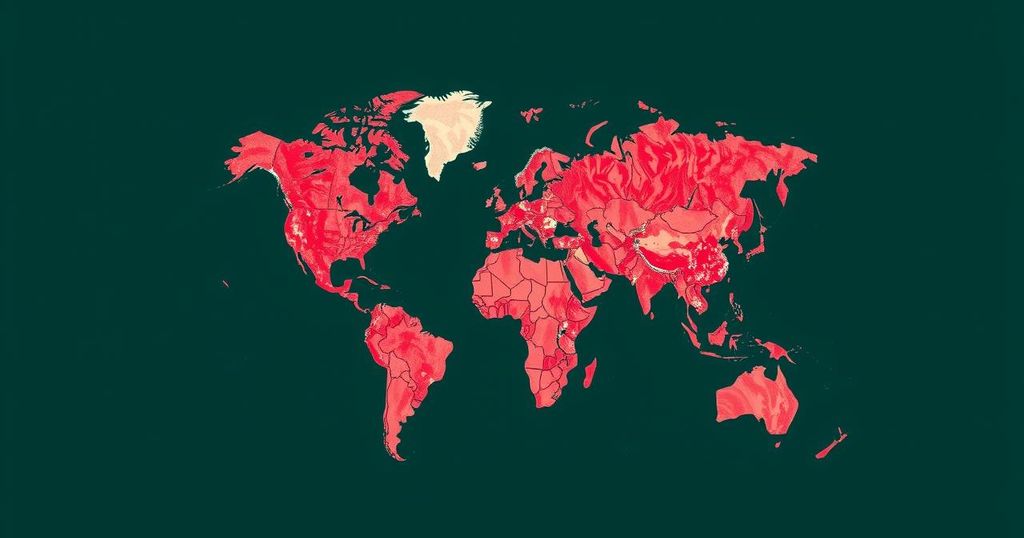At the 2024 COP29, the TAPP Coalition proposed a global meat tax to reduce greenhouse gas emissions from agriculture and promote vegetable consumption. They criticized several Western nations for lagging in climate-related food policies while commending Switzerland, Denmark, and the EU Commission for leading in sustainable initiatives. The conference has also drawn attention for its complex political backdrop, including Afghanistan’s representation under the Taliban.
During the 2024 United Nations Climate Change Conference (COP29) held in Baku, Azerbaijan, the TAPP Coalition called for the implementation of a global meat tax to combat climate change. This initiative is aimed at reducing excessive consumption of animal protein and lowering agricultural greenhouse gas emissions. TAPP policy officer Willem Branten highlighted that necessary commitments for dietary transitions must feature in the conference’s concluding statements. The coalition urged leading figures such as the EU Commission and China to spearhead these changes, contrasted with the slower pace of nations like the United States, Australia, Canada, and the United Kingdom toward such food pricing policies. Furthermore, the coalition pressed for vegetable subsidies and provided insights on the dichotomy between nations excelling in food pricing initiatives and those lagging. Switzerland, Denmark, and the EU Commission received praise for their progressive approaches, while the TAPP Coalition criticized major Western countries for not adequately addressing the climate impact of their dietary choices. The conference also highlighted the complex international dynamics, including Afghanistan’s participation featuring representatives since the Taliban’s return to power and concerns regarding the host nation, Azerbaijan, facing accusations from Amnesty International regarding humanitarian law violations. President Joe Biden did not attend COP29, delegating senior officials such as White House adviser John Podesta and Energy Secretary Jennifer Granholm instead. TAPP Coalition reiterated their stance that the long-term success of future conferences hinges on the inclusion of concrete steps toward dietary change and greenhouse gas pricing within agricultural systems to achieve climate goals.
The TAPP Coalition advocates for comprehensive food policy reforms to mitigate climate change, specifically targeting animal protein consumption known for its significant carbon footprint. The coalition’s calls for a global meat tax were aimed at addressing the environmental impact of excessive meat consumption while encouraging healthier dietary habits through subsidies for vegetables. As the world faces escalating climate challenges, discussions at forums like COP29 focus on innovative policy solutions to drive sustainable practices at both individual and national levels. The contrasting approaches of various countries highlight a significant divide between those actively pursuing these changes and others considered laggards.
The TAPP Coalition’s advocacy for a global meat tax at COP29 underscores the increasing recognition of dietary choices in climate strategy. By calling for tax measures and subsidies that promote healthier, lower-emission foods, TAPP urges global leaders to commit to meaningful dietary shifts. This conference not only highlights a pressing need for policy innovation but also points to a global division in climate action commitment, emphasizing the role that each nation plays in addressing climate challenges.
Original Source: www.shorenewsnetwork.com






